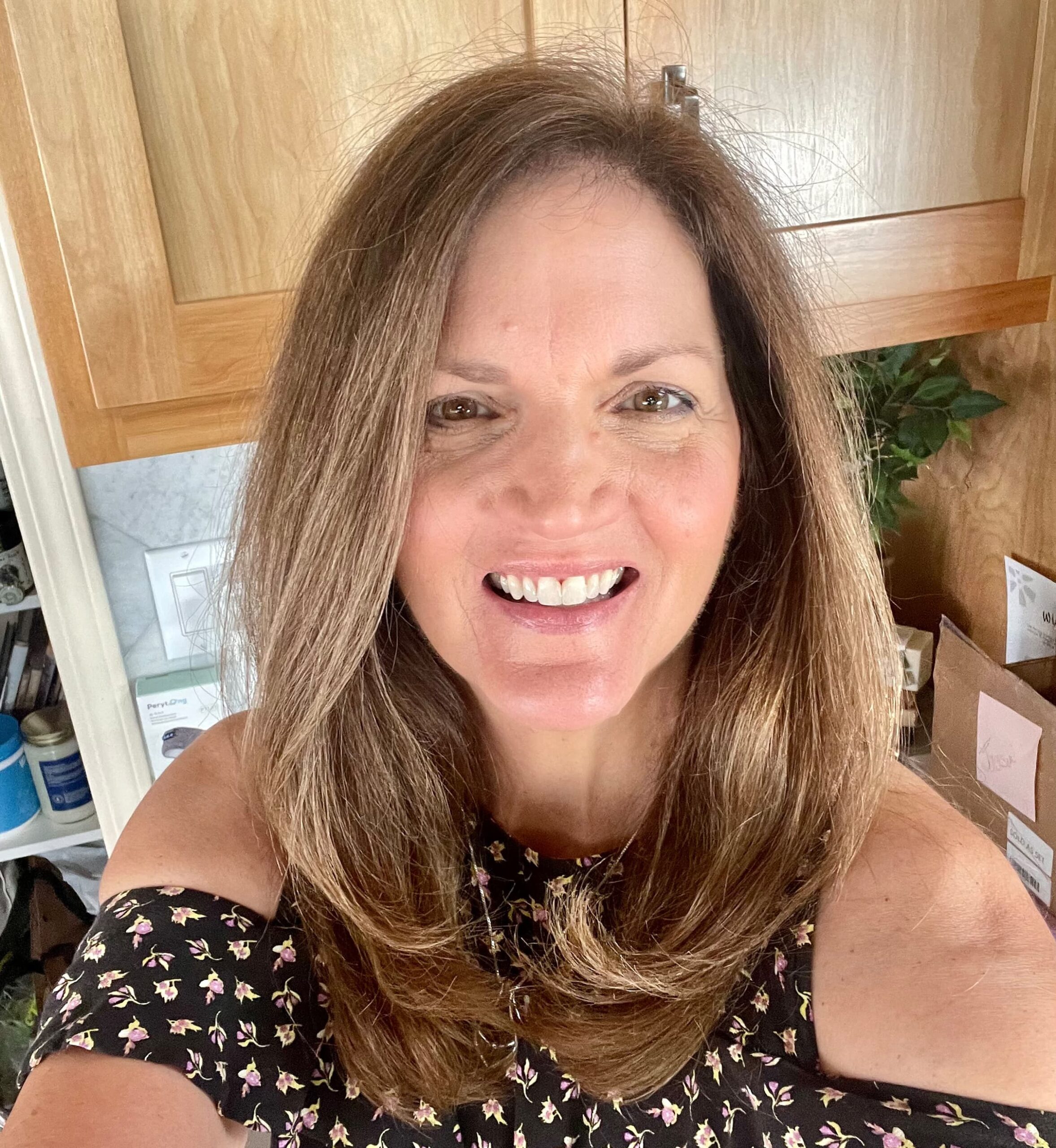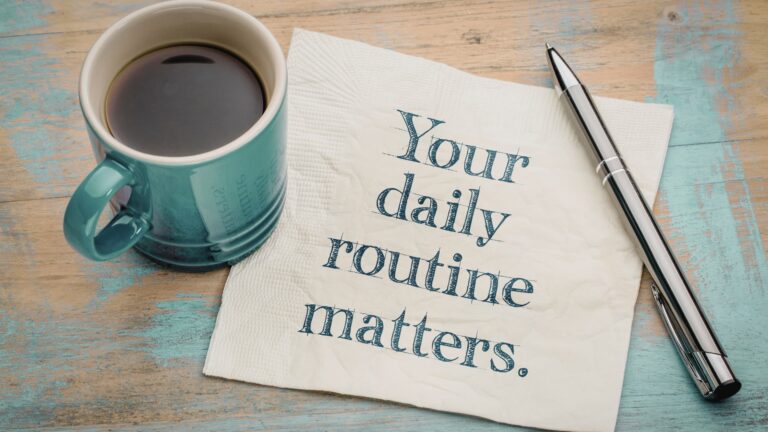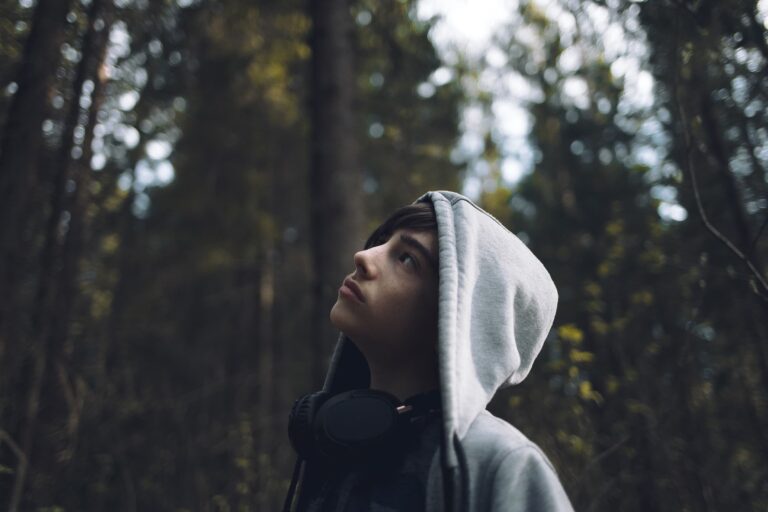Grief, COVID Loss, and New Beginnings: An Interview with Tracy Quinn
I’m happy to share with you the poignant journey of Tracy Quinn, a member of our Widow Squad community, who faced the unimaginable grief of COVID loss when her husband died suddenly at the beginning of the pandemic.
Tracy’s story highlights the emotional and logistical challenges she encountered in the wake of her husband Carl’s sudden passing. From emergency calls in the middle of the night to figuring out life without her partner during a global pandemic, Tracy’s experiences really highlight how much strength there is in sharing stories and leaning on community support during the toughest times.
Her story is not just about grief and COVID loss, but also about finding little moments of joy and hope amidst the chaos. If you’ve been through something similar, Tracy’s honest reflections and the way she’s navigating her path forward might resonate with you.
Key topics in this episode:
- The sudden and devastating impact of COVID-19
- The complexities of healing and starting anew after a spouse’s death
- The personal growth and insights gained from coping with significant loss
Join us as Tracy generously shares her insights, reflecting on the unpredictable nature of grief, the enduring love for a lost spouse, and the gradual journey towards healing.
Listen to the Full Episode
Links + Resources From This Episode
- Are you searching for emotional support, practical advice, and guidance on navigating widowhood? Join us in the Widow Squad membership
- Follow us on Instagram and subscribe to our YouTube channel
Episode Transcript
Kim: I’m talking to Tracy Quinn today about her widowhood experience with COVID loss as a widow. Tracy is also a member of our widow squad community, and I’ve known her to be very gracious in sharing her ups and downs and everything in between in our membership meetings. So, I wanted to give you the opportunity to hear from Tracy directly as we chat about the hurdles she’s jumped, the most important things she’s learned along the way, and how she’s found those little bits of happiness and hope even when things seem super tough. So whether you’re walking a similar path or just here to listen and learn, I think you’ll find Tracy’s story really helpful and heartwarming.
Life Takes a Tragic Turn During COVID-19
Kim: Thanks so much, Tracy, for coming on to chat with us today. Can you tell us a little about your background story and how you became widowed?
Tracy: So Carl and I were married for 36 years and had our anniversary Thanksgiving of 2019. And then, of course, 2020 hits, and it’s the pandemic. And we went off to a conference in Colorado at the end of February, came home, and Carl had caught COVID. Thirty-five of the attendees ended up catching it.
Kim: Oh, wow.
Tracy: He was still working from home because his company had virtual. The shutdown happened on March 17th. And so, you know, we’re kind of just rocking and rolling and doing what everybody’s doing and trying to find toilet paper and all the normal stuff.
Kim: Yes. I remember the toilet paper, the fiasco. That’s so crazy when you think back.
Tracy: He was pretty sick. He was finally able to get tested on a Friday, and it came back positive. And then he was actually feeling better by and we had a great day together. We cooked dinner together and enjoyed a lovely evening.
And then at 3:30 in the morning, he got up to go to the bathroom, came back to bed, and I said, “are you okay?” You know, like I normally would because he had been sick. And he goes, “yeah, but I did some something to my back.” He had thrown out his back in the past. And he got back into bed, and I turn over to go back to sleep and I hear him sit back up and I thought, oh, he’s not comfortable. His back is really hurting.
Then I heard this SLAM. It turned out it was his head hitting the nightstand. His arm was hanging between the bed and the nightstand.
Kim: So he sat up or you saw him sit up?
Tracy: I heard him sit up.
I was thinking he just can’t get comfortable because he threw out his back out coughing or whatever. Turns out he probably either had a blood clot or some sort of heart event happen because of COVID.
I checked him, and he still had a pulse. I grabbed my phone and called 911 right away. They were amazing on the phone, but I had to get him to lie flat. I had to lift him onto the floor to do CPR until the paramedics could get here, which was about five minutes. The woman on the phone was just amazing and helping me count breaths, but he’s not responsive.
So the firefighters and paramedics come in and they’re doing their stuff, and the fire captain pulls me aside and is asking me some questions and what’s going on. Yes, he tested positive for COVID. And then the funny thing is he stops me, and he said, “ma’am, maybe you want to put some pants on?”
Kim: Oh my gosh.
Tracy: I’m in a t-shirt and my underwear.
Kim: Of course you are. You were in bed.
Tracy: So I go get dressed and I can hear the “clear!” and they shock him.
Kim: Oh my gosh.
Tracy: The fire captain pulls me aside down the hallway a little way, and he’s asking me more questions. A few more times, I hear them try to shock him. Then the fire captain said, “why don’t why don’t we go sit out in your front room?” I’m like, “okay.” One of the younger paramedics is with me and I walked over to my front door to get my shoes because I’m thinking we’re going to the hospital.
Kim: You’re going to the hospital. Right.
Tracy: Better get my shoes on. I sat on the couch and then I stopped and said, “I’m not gonna be able to go to the hospital, am I?” They’re not allowing people in at this point. And he said, “no. I’m sorry. No. You won’t.” So I set my shoes aside.
About a half hour later, the sheriff’s department shows up, and they walk in about five steps, look around and see all of us wearing masks. And then he stops and said, “oh, it’s a COVID house.” And he turns and leaves, and then they refuse to come in the rest of the day.
Kim: They wouldn’t come in?
Tracy: The sheriff’s department wouldn’t come in. So, then it was, like, 4:50 in the morning and at 4:48 is when they called it. They came out, and they said, “I’m sorry. We did everything we could. He didn’t make it. Is there somebody we can call?” And I’m like, who do we call? Nobody can come in.
Kim: Right. Who are they thinking you’re gonna call at this point?
Tracy: I had a phone call with the county health department when Carl’s test came back positive. They said, “we’re going to assume you either had it or you have it or you’re going to have it so you need to quarantine.” So I was finishing up 14 days of quarantine.
They said, “don’t leave your house, don’t go out, don’t see anybody.”
So I tried to call my sister, but it’s not even 5:00 am there.
Kim: But you’re in shock. What are you supposed to do? Who do you call? What do you say? They told you your husband died. He was okay 20 minutes ago, and now he’s dead.
Tracy: Now he’s dead and gone.
Kim: Yeah. You can’t process that information.
Tracy: I got ahold of my brother because he gets up early to go to work. And he’s in shock, too. I had to call my kids and tell them.
Kim: So your kids are how old at this point? They were adults?
Tracy: Yes, they were 27, 28, and 30. They knew their dad had COVID. But they also knew he had had a great day and was feeling better. And his oxygen numbers were actually pretty good. We thought we were on the upswing.
My daughter said, “mom, you have to eat, sleep, take care of yourself because we can’t lose you too.”
Kim: Right.
Tracy: Then the sheriff’s department came to the door. The firefighters are cleaning up and getting ready to leave, and the sheriff comes to the door and says, “so I have some bad news. The county coroner refuses to come pick up the body because it’s a COVID body.
Kim: This is unbelievable. So you need to find someone else to come get the body? And do what? Take it where and do what? If the coroner can’t pick it up, what are you supposed to do?
Tracy: That’s what I asked. I said, “who do you suggest?” And they said, “maybe the Santa Clara county corner or a funeral home.
Kim: Yes. A funeral home.
Tracy: Sadly, but a blessing in disguise, was my father-in-law had just passed unexpectedly from a heart attack at the end of January. We had just finished having his service, and I was very involved in the planning of it. I had the phone number for the funeral home. So, I called them and they said they could send a crew out, but it’ll be an hour and a half or two hours before we can get there.
Kim: I want to ask you a question, though, about COVID and the heart situation. So, obviously, your husband had COVID. Was that what was put on the death certificate or was there something else that you found out or that you knew had precipitated this or caused his actual, was it a heart attack?
Tracy: So they did list COVID as the number one cause of death, and the number two cause listed cause was respiratory distress.
Kim: Because of COVID or because of something else? Do you believe he died of COVID, or do you think he died because of something else?
Tracy: I believe he died of COVID because it affected his heart. They started coming out with information that it affected people’s hearts.
Kim: Okay. Got it.
Tracy: Otherwise, he was perfectly healthy. He wasn’t on any medications at all, exercised, ate well. He saw his doctors regularly, had all the normal tests.
The Unseen Challenges of Grief and Pandemic Restrictions
Kim: When did you get COVID or did you even have COVID?
Tracy: Apparently, I did because I had, like, congestion and the sniffles for about three days. One day, I took a Sudafed. But that was seriously it.
I never got tested for it, but I went in and had the antibodies test in June of that year.
It showed that I definitely had the antibodies. So, I had had it. I just didn’t realize it because in my case it was super mild.
Kim: Which has to be frustrating for you because of, obviously, this resulted in the death of your husband. You see yourself and other people who fly through COVID and don’t have an issue with it, and then other people are dying from it. And there’s no rhyme or reason that they can really pinpoint. That has to be incredibly frustrating, and then you’re dealing with all the rest of the distancing issues that come with COVID.
So you are now responsible for finding somebody to pick up his body and coordinate things you shouldn’t have to be coordinating. Your husband dies suddenly and then you have all these other things you have to take care of, and then you have social distancing. And then you have people that are looking at you with a side eye because you had COVID. They don’t want to be in the room with you or be near you.
I mean, did you like, this is not a joke, but did you develop PTSD from any of this?
Tracy: Yes. Yeah. Absolutely. And my boyfriend now had COVID at the end of February and the PTSD came on every time he coughed.
Kim: That has to be so scary.
Tracy: It is scary.
Kim: Just a reminder, Tracy’s a Widow Squad member, and she brought that topic to the to the group because you were having a hard time getting through that.
That’s part of why you need to be around people who understand what you’re going through or understand what being a widow is like and how those triggers can come up because it could be just the simplest things that could throw you into an absolute panic.
I can understand how a cough or any sickness, any sniffles, anything leads you right back to that place. Like, oh my gosh, I hope he doesn’t die.
Tracy: Yeah. Not to exaggerate it, but it’s like, if you have a cough and you have congestion, you should probably test and see if you have it. I understand the tests aren’t foolproof, but why not? You can still get free tests.
Kim: Because this isn’t going away. We understand this. Right? This is not going away.
Tracy: Nope. Not going anywhere.
Kim: We need to manage it better than we did.
Tracy: That morning, one of my brothers and another brother and his wife showed up. But by then, I had had a phone call from the county already informing me I had to restart my quarantine for 14 days all over again. I was not to leave the house unless I was alone and, you know, outside for a walk. That was it. No one could enter the house.
So my family would come and visit me out on my patio and talk to me through the screen. All those normal things you do, like bring food, sit with the person, do laundry, support you. None of that could happen.
Kim: It was crazy. It’s crazy when we look back on it now. We’ve got four years’ distance and realize we probably could’ve done things differently. Not you. I’m saying the world.
Tracy: Sure.
Kim: Society in general. You can’t go back and change that. But you have all those added elements of the death. You know, death is hard.
Whether it’s sudden or whether you’re expecting it, no one can prepare for the finality of death. And you’ve got all the things that you must deal with after all that happens and you’re doing that in quarantine.
I’m curious, what are one or two things you wish people understood about the experience of losing a spouse?
You lost your spouse, but you were also dealing with COVID and the quarantine part. And we were all a little crazy back then. We didn’t really know what was going on, and a lot of people were dying.
So, you have a little bit of space between then and now. What do you wish people knew or understood about the experience of losing your spouse?
Tracy: The hard part is the expectation that at the one year mark, for whatever reason, people think you should be good. You should be good now. It’s been a year. You know, move on.
Kim: We hear that all the time. Move on. Move on. Move on. Move on.
Tracy: Right? There’s no magic number or date when you’re ever over it. No. But it does become less.
I love hearing that I’m so strong. It feels good, and I am stronger than I ever thought. But, I think I think it would be good for people to know that we do still want to talk about our spouse, our loved ones, and not avoid talking about them because we think it might hurt. If anything, it’s wonderful to talk about Carl and how goofy and silly and brilliant he was. But, you know, that makes me smile. I might have tears, but then I’m OK.
Kim: That’s the expectation of most people that haven’t experienced a death or a significant loss. I think the expectation for them is that don’t want to talk about it. We don’t want to be reminded of it. They think they’re going to make us even more sad if they bring up our spouse’s name. We laugh about this in the Widow Squad because it’s so funny. Like, no. No. It’s, like, literally the opposite.
We want to talk about them all the time.
Will we cry? Of course. Will we be sad? Yes. Those feelings don’t go away. We just make room for them. Right? The more people hear that or understand that, hopefully, they won’t be as shy about asking. Having gone through the experience, I know for myself, I’ll ask them about their spouse. Tell me about tell me about them.
What was your favorite memory? What is your favorite meal that you shared? Before my husband died, I never would have done that. Because I didn’t know.
And now I know. So, anybody listening, please let us talk about them. It’s a misconception that we don’t want to talk about them. That’s what people need to know.
Delayed Memorial: Adapting Grief Rituals After a COVID loss
Kim: When you were going through all the COVID and the quarantining and whatnot, wasn’t there, like, 2-year span where you couldn’t have a service for him? Tell me about that.
Tracy: We chose as a family not to have a service until we could all be together and feel safe being together. Granted, we still asked that only vaccinated people attend. That was our choice as a family. But, yeah, it wasn’t until the 2-year mark we felt comfortable enough to do that.
One thing that we did was something for us, but also something for all of Carl’s friends and colleagues throughout the world.
We wanted to have some sort of celebration of him and a remembrance of him. He was a big video game player, and he worked at a video game company. Our son did his internship at the same video game company while our daughter was working for their big competitor.
So, we came up with the idea of a game-a-thon. And it’s COVID still, and everybody has gotten pretty good at Zoom and Twitch for video games and stuff. So, we put it up on Facebook, and asked if you would like to make a donation towards COVID research. That was our goal. And it was just super fun.
We put it out on Facebook and said to play any kind of game you want with your family, like a card game, a board game, or video games. I was by myself here, so I walked up to the street above me with chalk and drew hopscotch and then wrote play along for Carl. I could see out my window when neighbors would come across it and they would do the hopscotch.
Kim: How fun! I’m curious if you would have done that if hadn’t waited two years to have his service. If you didn’t have that space in between, do you think you would have done a similar event for him or not? Because I find that fascinating. I think it sounds like so much fun. And not that it’s a fun thing to be celebrating death, but we’re just remembering or honoring. Do you think you would have had that event closer to his death if you could have a service and there wasn’t so much social distancing at the time?
Tracy: I don’t think we would have had that. If it was normal circumstances and we could have had a service, you know, within two weeks or whatever, a month of his passing, we would have just had a service and not even felt the need to do this other.
But the fun part about it was it was, you know, colleagues around the world were playing games and then posting it on Facebook with pictures of the family playing whatever, and they’re in Sweden.
Kim: That sounds fun.
Tracy: My daughter ran it all online, hosted the site, and everyone sent in video. We did the 24 hours of gaming, and then my daughter ended it with a slideshow of Carl. So yeah. That was cool.
Kim: Well, he’s smiling. He’s smiling down at you. That sounds like so much fun.
Looking back, you’re going through COVID and it’s social distancing, and there’s not a lot of support options available to you. What support did you find helpful? Was there anything around you locally, or did you have family support?
Tracy: Yes. I had a lot of support, and I have a friend who’s a financial advisor. Our kids went to preschool together, so that’s how I know him. And he was just amazing as far as telling me what I had to do. Even banks weren’t open at the time. I had to drive 40 minutes to get to an open Wells Fargo bank.
Kim: Wow.
Tracy: He was very supportive, and the friends that you don’t expect are often the ones that really show up.
Kim: It’s so crazy how that happens. It’s like not the exception, that seems to be the rule. The people that we think are gonna be there for us aren’t. And the ones that you would never expect are the ones who step up, and it’s so crazy how many times we hear stories like that. It’s crazy.
Tracy: I think we talked about that in one of the Widow Squad Zooms.
Kim: Yes. I’m sure we have.
Tracy: The nice part about that is since experiencing it and knowing someone who’s lost somebody, I want to be that person.
Kim: Absolutely. I want to show up for the people in my life.
Tracy: Like you said about, “tell me about your person.” Those are probably two very positive things that have come out of it for me. I’m less scared of asking about the person, and I’m more vulnerable in just showing up and wanting to be there for my friends.
Kim: That segues into, what have you learned the most about yourself in this experience? Like, how do you think you’ve changed? What do you think what are some changes you’ve noticed about yourself since Carl died?
Tracy: Oh, I think it probably reinforced for me who I already was, but didn’t give myself credit for.
Kim: Oh, I like that. Yeah.
Tracy: You know, like, I didn’t realize how scheduled or structured of a person I was. Because it’s just what I did. That’s who I was. I’m a stay-at-home mom, and I’m good at it. And this is how I run things. I don’t think I gave myself enough credit for how good I am at that.
That was super beneficial in going through all the finances and paperwork and everything that you have to do when you lose your spouse.
Kim: That’s a great point.
Tracy: You know, it’s insane. I would be on a phone call with multiple people and needed to find some piece of paper and I was on it. My financial advisor said, “I knew you were gonna find that. I knew you knew right where it was.” So, I think for me, it’s giving myself a pat on the back. You know? Good job. I know how to do a lot of things.
Kim: Yes. You do.
Tracy: And I just didn’t always give myself credit for it.
Kim: Well, I think that’s just a trait of females in general. We tend to dismiss our strengths for whatever reason. We talk about that a lot in the Widow Squad too is giving yourself that pat on the back and recognizing your strengths and how strong you really are.
But going back to what you said earlier about when people said, “you’re so strong. I don’t know how you do it.” We’ve often said we don’t know how we did it either. You just have to deal with whatever comes your way.
There’s no strong or weak about it. It’s just handling the things that are coming at you. So when people said “you’re so strong,” I find this minimizes my pain or my struggle. I’m not not struggling because you think I’m strong. I don’t not feel pain because you think I’m strong. I still feel pain and I still struggle. Right?
That response is like nails on a chalkboard sometimes. Like, I’m still suffering too. So don’t dismiss that. You know what I mean?
Tracy: Yes. I am strong, but I think I just went into survival mode. You kind of just go into survival mode and you do what you have to do. It’s one day at a time, one task at a time, and you just get through it.
Kim: Yes. You handle it.
Tracy: This is not a club any of us wanna be in.
Kim: Heck no. Not even not even close. So, what advice would you give a newer widow? Because now you can look back and see things you did or said or how you acted or how people acted around you. What would be some advice that you would give someone who’s recently widowed, as a guiding light, or to find a little bit of hope?
Tracy: I think I would want to say definitely give yourself the time you need to get the task done that has to get done. And then allow yourself some grace to step away from it for the rest of the day. And just do another one tomorrow and do another one the next day. There are certain things that have to happen in a certain time frame, but allow yourself some rest and just take it one task at a time.
Kim: That’s an excellent piece of advice.
Tracy: And believe in your choices and decisions. I tend to go out and ask all my family’s advice before I do something. My boyfriend, James, has said to me a number of times, “people aren’t thinking about you as much as you think they are.”
Kim: You got that right. He’s a smart man. Just do what’s right for you and take everything else out of the equation.
Tracy: It’s so hard for me because I’m a people-pleaser.
Kim: Of course. And you want a little bit of reassurance. You want that little bit of reassurance that what you’re doing or the decisions you’re making are okay. But a lot of times, people don’t know what your situation is or what you’re going through. So they may be giving advice that has nothing to do with what you’re trying to get done. I noticed a couple of times for myself because I would ask other’s opinions because I wanted to know if the decisions I was making were going to be okay. Well, nine times out of ten, I would get different responses from people or just flat-out wrong advice. So, after a while, and I’m talking years, you go, you know what? I knew better from the beginning. I made the right decisions even though I second guessed myself.
So that’s a good point. You can make good decisions. It’s scary as hell, but you’re capable of doing it.
Tracy: And I think for me with the death being so sudden, I second guessed my decisions after that. You know? Because you’re like, I didn’t expect this and I’m not sure that I’m on steady ground about anything right now.
Kim: Right. Nobody’s on steady ground after a death, whether it’s sudden or whether like in my case I knew it was coming. I still second guessed every decision I made anyway just because your whole world is turned upside down. Like, everything has changed. So how can you trust anything anymore? How can you trust anything when your spouse dies? It’s not uncommon to second guess everything.
We just know from experience now having the hindsight that it’s unnecessary to second-guess every decision. To your point about what advice would you give new widows, just trust your gut because it doesn’t usually steer you wrong.
Embracing New Beginnings: Tracy’s Journey with New Partner
I want to ask you about your boyfriend. How long have you guys been dating?
Tracy: Two and a half years.
Kim: He’s obviously a good dude or you wouldn’t be with him. How has he accepted your widowhood and talking about Carl and keeping him alive in your memory?
Tracy: He’s been amazing the entire time. He has never pushed me or even asked me to put away any photos or take anything down. We’re in the process right now of packing up to move. So I am sorting through things and I cleaned out one drawer that was Carl’s, my late husband’s, and I hadn’t even really looked in it much since he died.
I had some issues I call grief grenades. Like, you never know when it’s gonna hit. I was sitting here at the kitchen table going through the drawer and there were cards I had given Carl or he had given me. James saw me start to tear up and cried, and he just walked over with Kleenex, and he goes, “here you go. How can I help you?”
It’s difficult because these are emotional items that only I can go through. Right?
Kim: Exactly.
Tracy: There isn’t any way that he can help. He’s been amazing. He’s living here now with me in the house that Carl and I lived in. And even if I wasn’t dating, I decided last year that I was ready to be out of this house.
There are some great memories here. But the memory of walking into the bedroom, where Carl died is always there. When James first moved in, he said, “how would you feel if I found somebody who would like your bedroom furniture?” First off, he said, “do you like my bedroom furniture?” And I said yes. So, he said, “how would you feel if I found somebody who could use your bedroom furniture, and would you allow me to move my furniture in to what will be our bedroom?” And redecorate it to try to take away some of that memory of Carl dying in here every time you walk in. And I’m all, “Yes. Please.”
That’s who James is.
Kim: That sounds amazing. That’s a good thing for our listeners to hear too, because there are good guys out there. I got remarried, but I didn’t go through the whole online dating scene or anything like that. We met through a friend, but there are still good guys out there. So, whatever your preference is, to date or never date again is fine, but there are plenty of nice guys available.
Tracy: There are. I wasn’t looking. He wasn’t looking. We’ve known each other since high school but hadn’t seen each other in 40 years. We we’re friends on Facebook so, you just never know.
Kim: You never know. It happens when you least expect it. Right?
Tracy: That’s what they say. I had a conversation with my mom right around the one-year anniversary of Carl’s passing. And she slammed her hand on the table, and she goes, “so I think it’s time you start dating.”
But I was like, “no. I am not ready. No. It’s not that we’re in a pandemic. Like, I don’t even know what dating would look like, mom.”
And then it was four months later, and here’s James.
Kim: It’s amazing how that happens. I’m very happy for you, and I’m so thankful that you’ve come today to tell us your story. We’ve known each other for a while. I think you’re one of the OG Widow Squad members. One of the first to sign up back in 2022.
I’m just very impressed with your outlook and the way you handle yourself. It’s very graceful and kind, and you’ve added a lot to our Widow Squad membership meetings, too, when you show up on the Zooms. I’m thrilled to have you on today and tell us a little about your story.
I’m so thankful to hear that you found a house that you want to move into, and you found a nice partner, and that things are going well. That doesn’t mean we don’t miss our spouses, does not mean we’re not still sad, does not mean any of that. But you’re moving forward, and you’re carrying Carl with you in your memory.
I really appreciate you telling us your story and coming on today. I’ve had so much fun talking to you.
Tracy: So happy to share. Yeah. It was great.
Wrap Up
Kim: And that’s a wrap on our deep dive conversation into Tracy’s journey with all its ups and downs.
It’s conversations like these that remind us we’re not alone in our struggles, and there’s always a light at the end of the tunnel, even when it’s hard to find sometimes.
If Tracy’s story touched you or if you’ve got your own experiences to share, remember, this is what the Widow Squad community is all about, supporting each other, sharing our stories, and finding strength together. Don’t hesitate to reach out, join the conversation, or just get involved.
Until then, keep your spirits up and keep taking good care of yourselves.







